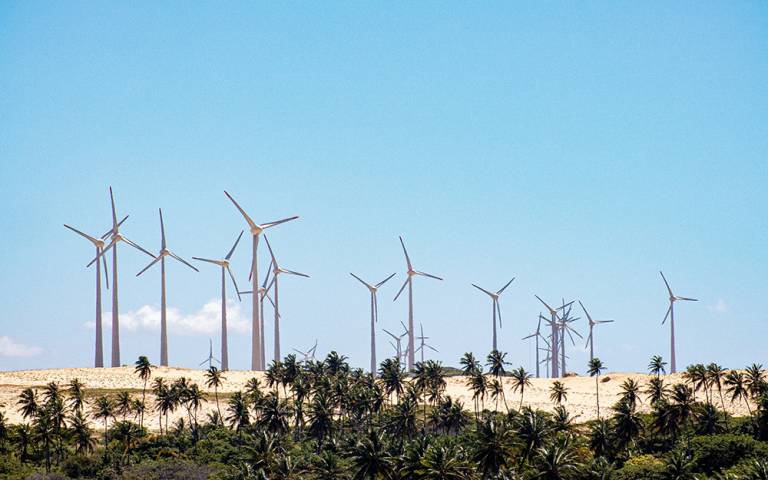‘The costs and benefits of environmental sustainability’ paper wins Outstanding Article Award
23 May 2022
The paper was given the award by the Sustainability Science Journal and was chosen from over 124 articles.

‘The costs and benefits of environmental sustainability’, written by Professor of Resources and Environment Policy Prof Paul Ekins (UCL Institute for Sustainable Resources) and Dimitri Zenghelis (University of Cambridge, London School of Economics) assesses what is known about the likely economic implications of either current trends or the transformation to a low-carbon and resource-efficient economy in the years to 2050. It asks the question, how does environmental sustainability square with the requirements for growth and development, especially in those parts of the world which have yet to industrialise on the back of cheap energy and where hundreds of millions of people remain mired in poverty? A key conclusion is that no conventional cost–benefit analysis for either scenario is possible. This is because the final cost of meeting various decarbonisation and resource-management pathways depends on decisions made today in changing behaviour and generating innovation.
The authors said:
“The inadequacies of conventional modelling approaches generally lead to understating the risks from unmitigated climate change and overstating the costs of a low-carbon transition, by overlooking the effects that policies can have on the process of innovation and developing competitive advantage in a changing global economy. This leads to a flawed conclusion that significant reductions in emissions are prohibitively expensive and, therefore, to be avoided until new, cost-effective technologies are developed.
We argue that this is inconsistent with the evidence and counterproductive in serving to delay decarbonisation efforts, because the cost effective technologies and changed behaviours will only emerge as a result of targeted action. Understanding the processes which drive innovation, change social norms and avoid locking into carbon- and resource-intensive technologies, infrastructure and behaviours, will help decision makers as they ponder how to respond to the increasingly stark warnings of natural scientists about the deteriorating condition of the natural environment.”
Further information
Photo by Vitor Paladini on Unsplash
 Close
Close

